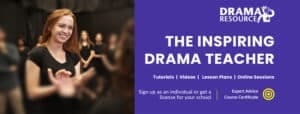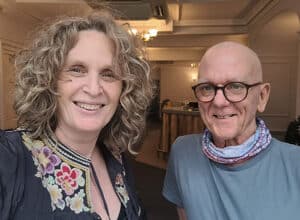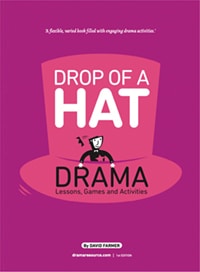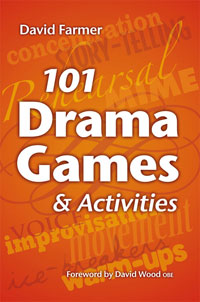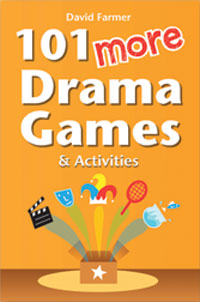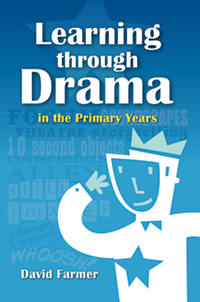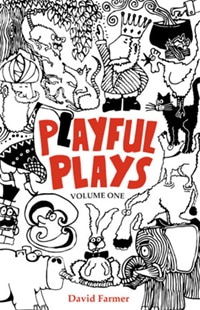From ‘Learning Through Drama in the Primary Years’ by David Farmer.
Drama strategies can be used as everyday teaching tools for a wide range of subjects. They can illuminate the human dimension of subject areas, such as how scientific progress may impact on individuals and communities. Drama is particularly useful when working on cross-curricular themes as it naturally bridges subject areas. If children take on the roles of archaeologists in Egypt, drama can link history, geography, mythology and art as well as the mathematics of pyramids and the science of building them. Ideas for using drama strategies in individual subject areas are summarised below.
Art
Art can be used as a way of reflecting on drama activity alongside, or as an alternative to, writing and discussion. Drama can help to spark children’s creativity and lead them into imaginative and vibrant artwork. Incorporate art into drama by doing collective drawing in groups alongside the drama activities to develop storylines or explore characters and situations.
Geography
Cultural and environmental issues linked to geography can easily be explored through drama. Teacher in role and role on the wall can be used to present a character from a particular locality and to examine an issue from their perspective. This can lead on to role-play with pupils working in pairs or small groups to deepen their understanding. Still images, tableaux and soundscapes can be used to create the atmosphere of different locations and environments.
History
Characters from any historical period can be examined through hot seating, role-play and role on the wall. Tableaux, improvisation and thought tracking can help to bring historical accounts, illustrations and artwork to life. Key decision-making moments for historical characters can be explored using conscience alley.
Mathematics
Maths makes a lot more sense when it is applied to real (or fictional) situations. For younger children, this can be through role-play in shop or restaurant situations. Journeys across the sea, through space or around the world offer potential for acting and storytelling which can include mathematical activities such as calculating journey times and duration, quantities of food and fuel and recording of temperature. Mathematical patterns can be demonstrated and explored through physical movement and dance. Pupils are more likely to remember geometric shapes if they have made them with their own bodies in ten second objects. When forming groups, ask pupils to get into even or odd-numbers. Children can even become human bar graphs.
Personal and Social Education
Drama techniques such as conscience alley and image theatre offer valuable opportunities for pupils to share their opinions and explain their views. Role-play and improvisation allow them to discover how their behaviour can affect others. Group negotiation and discussion helps to encourage such key skills as listening, working cooperatively and learning to respect one another’s similarities and differences.
Science and Technology
Science learning can be extended through activities using dance, mime, movement and ten second objects to explore physical forces such as gravity, friction or magnetism, or to represent the action of molecules, planets, geological phenomena or electrical circuits. A journey through the body gives great potential for storytelling and drama. Pupils can model food chains or create human bar graphs to display living representations of scientific results. The human aspect of science is particularly suitable for exploration through drama. Where do you stand? helps to dissect moral dilemmas. Role play, improvisation and teacher in role can explore how human activity affects living things and the environment, highlighting controversial ethical issues. This can lead on to improvised drama such as the enacting of documentary TV programmes, debates and discussions. Technology can help to extend and develop drama activities through the use of multimedia, such as photography, video, animation and sound recording.
Read next:
- 5 Creative Drama Ideas for your Classroom
- Teaching Literacy Through Drama
- Why Teach Drama to Primary School Children?
- Key Stage 1 Drama Lesson Ideas
- Key Stage 2 Drama Lesson Ideas
- Drama for Writing
Find out more:
- Attend one of our popular Drama Courses
- Download Drama – Primary National Strategy (PDF)

